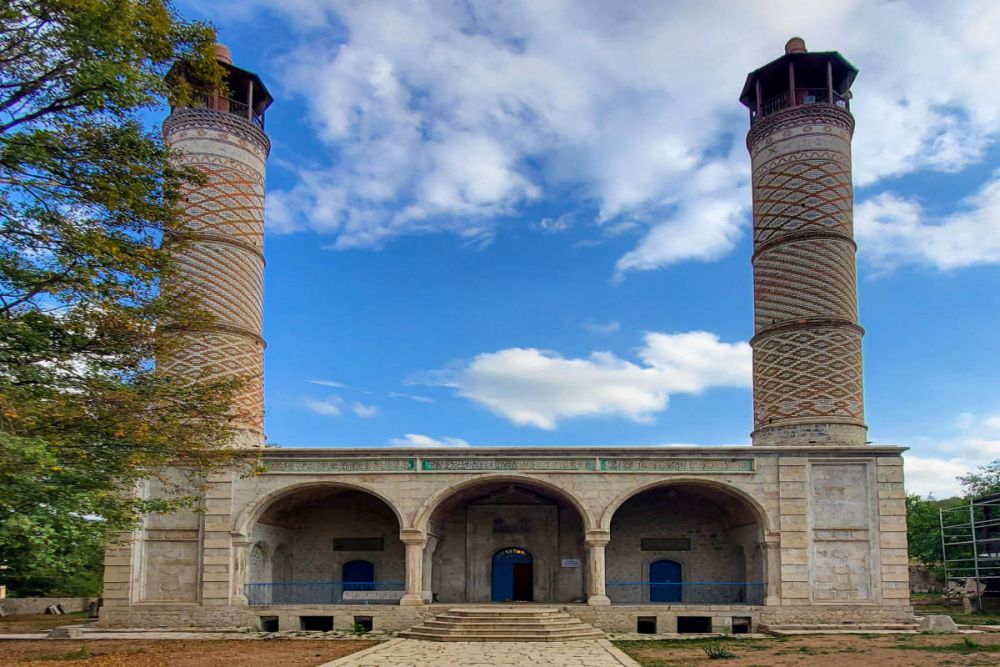

The Yukhari Govhar Agha Mosque, situated in the historical city of Shusha, Azerbaijan, stands as a unique architectural monument and a place of great cultural significance. The history of tourism related to the mosque intertwines with the tumultuous events that have shaped the region. For centuries, the mosque has been a symbol of Islamic culture and Azerbaijani heritage within the Caucasus.
Constructed in 1768-1789 by the order of Govhar Agha, the daughter of the Karabakh khan Ibrahim Khalil, the mosque features a blend of architectural styles reflecting the diverse cultural influences of the area. Its history, however, has been marked by periods of conflict and prosperity which affected the flow of tourists and pilgrims. The Soviet era saw a decline in religious tourism, but the mosque remained a point of interest for historians and those researching Islamic architecture.
Following Azerbaijan's independence and the subsequent conflicts in the region, access to Shusha and the Yukhari Govhar Agha Mosque has been limited. Efforts have been made to preserve the site as well as to offer restoration to encourage tourism. Recently, as the area saw a relative stabilization, there's been a tentative rekindling of interest in the cultural and historical offerings of Shusha and its iconic mosque. The mosque's rich history makes it a fascinating destination for visitors interested in religion, culture, and history.
In a post-pandemic world, the latest tourism trends are pointing towards an increase in secluded, cultural, and off-the-beaten-path destinations. Shusha, and particularly the Yukhari Govhar Agha Mosque, falls perfectly into these categories. As restrictions ease and infrastructure improves, it is likely that we will see a rise in cultural and historical tourism to the area. A new interest in sustainable tourism also means that visitors to the mosque engage in practices that respect the cultural integrity and contribute to the conservation efforts of the site.
For those planning to visit the Yukhari Govhar Agha Mosque, it is important to be respectful of the site's religious significance and adhere to local customs and traditions. As the mosque is a place of worship, appropriate dress and conduct are required. Tourist facilities may still be developing, so it's advisable to plan ahead when visiting the region. With increasing stability and investment in the region, the potential for tourism growth is substantial, which may soon place the mosque as a prominent stop on the itinerary of travelers to Azerbaijan.
Given the dynamic nature of the region, visitors should verify current travel advisories and local conditions when planning their visit to ensure accessibility and safety.